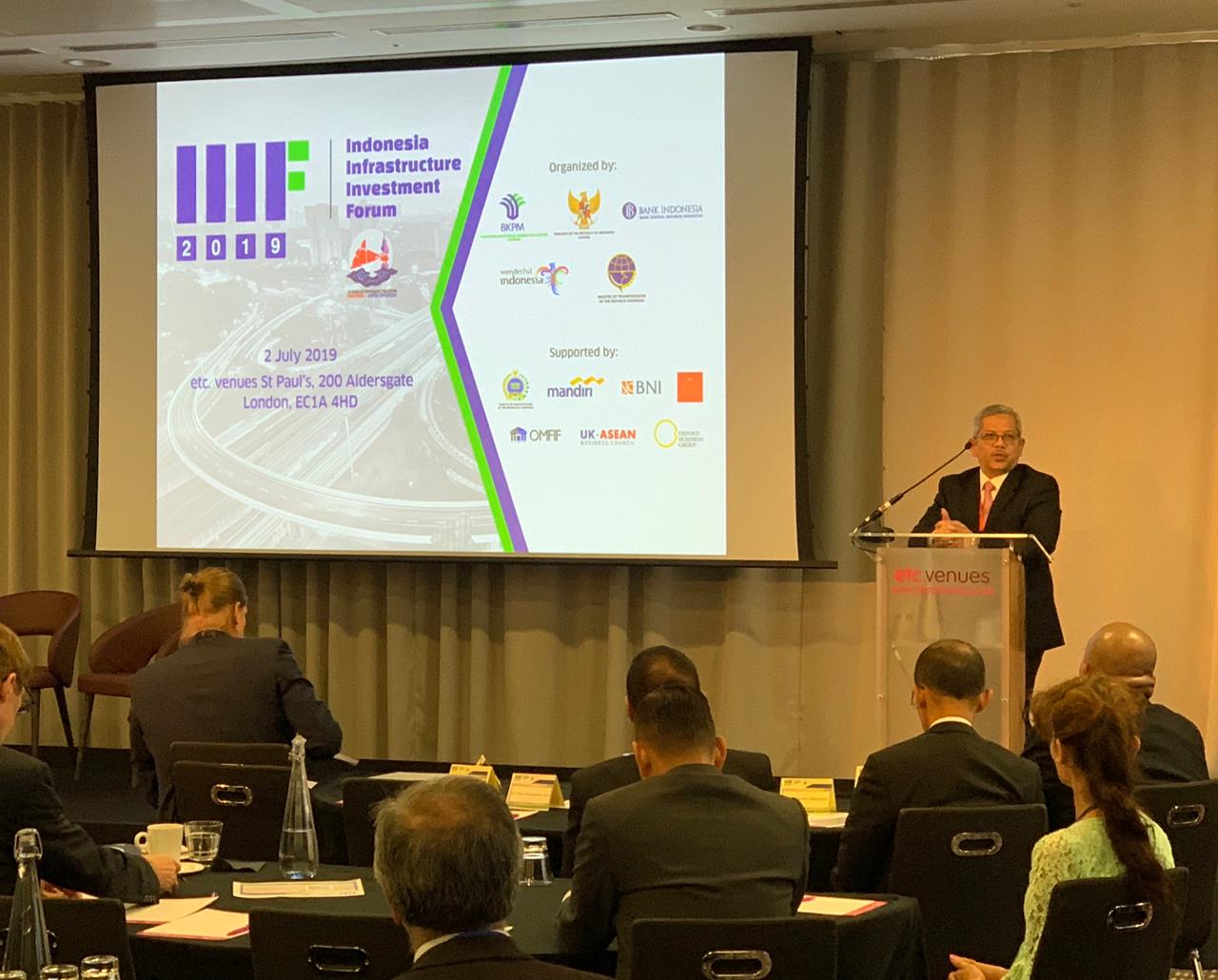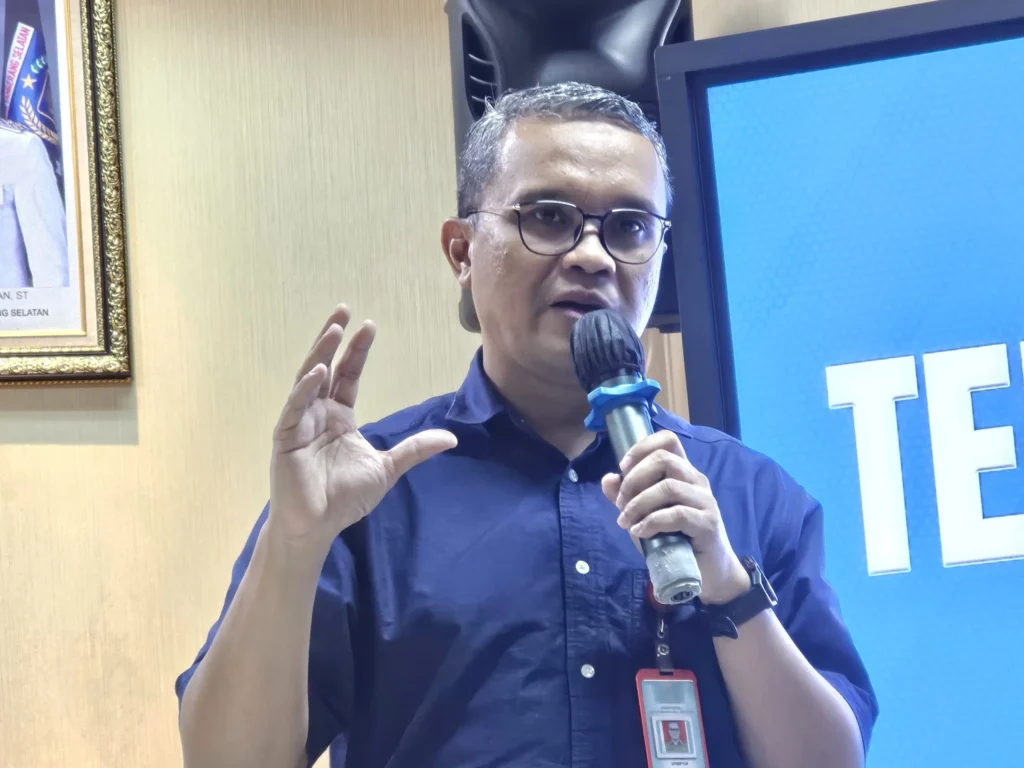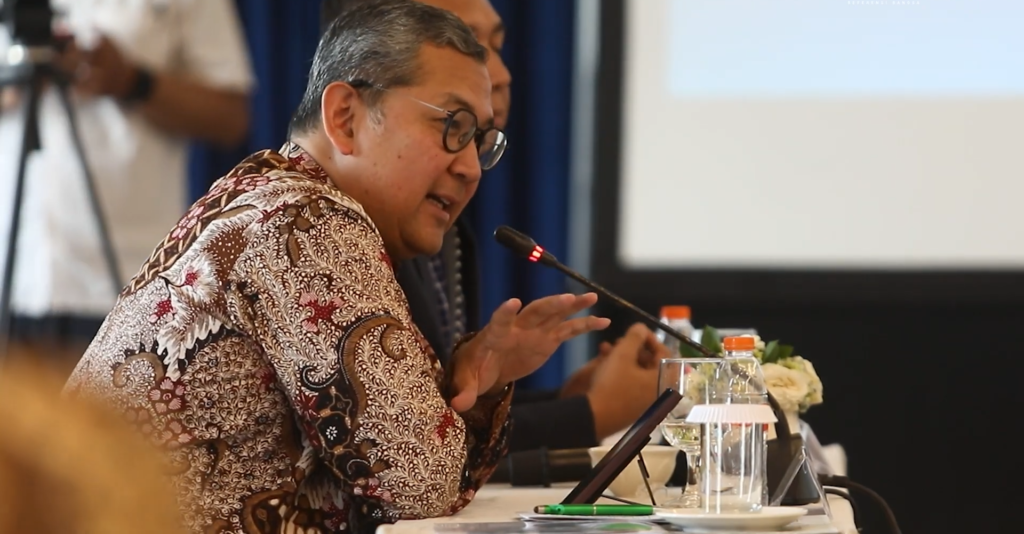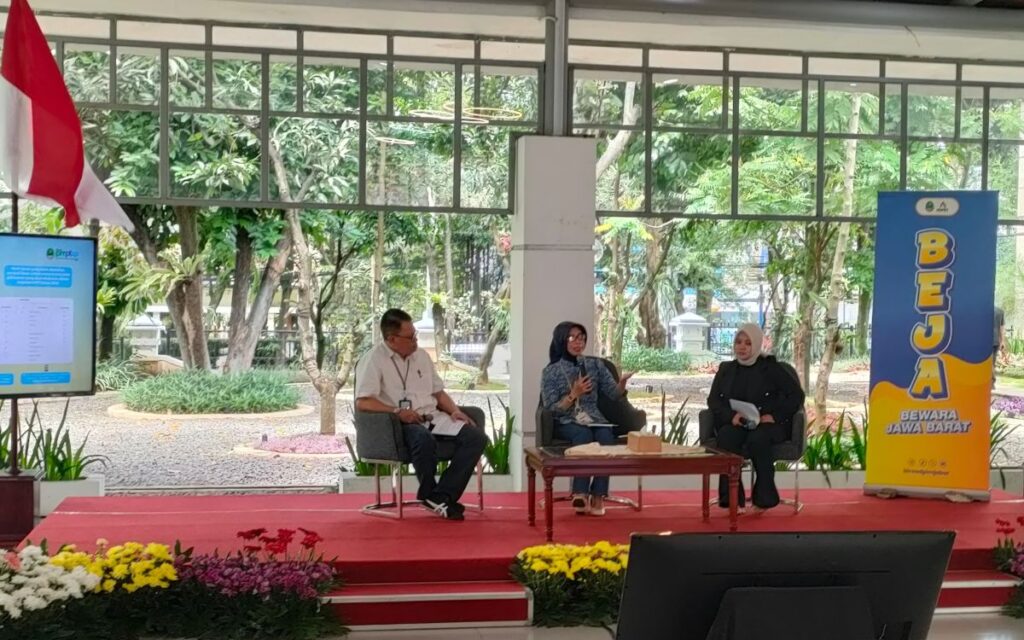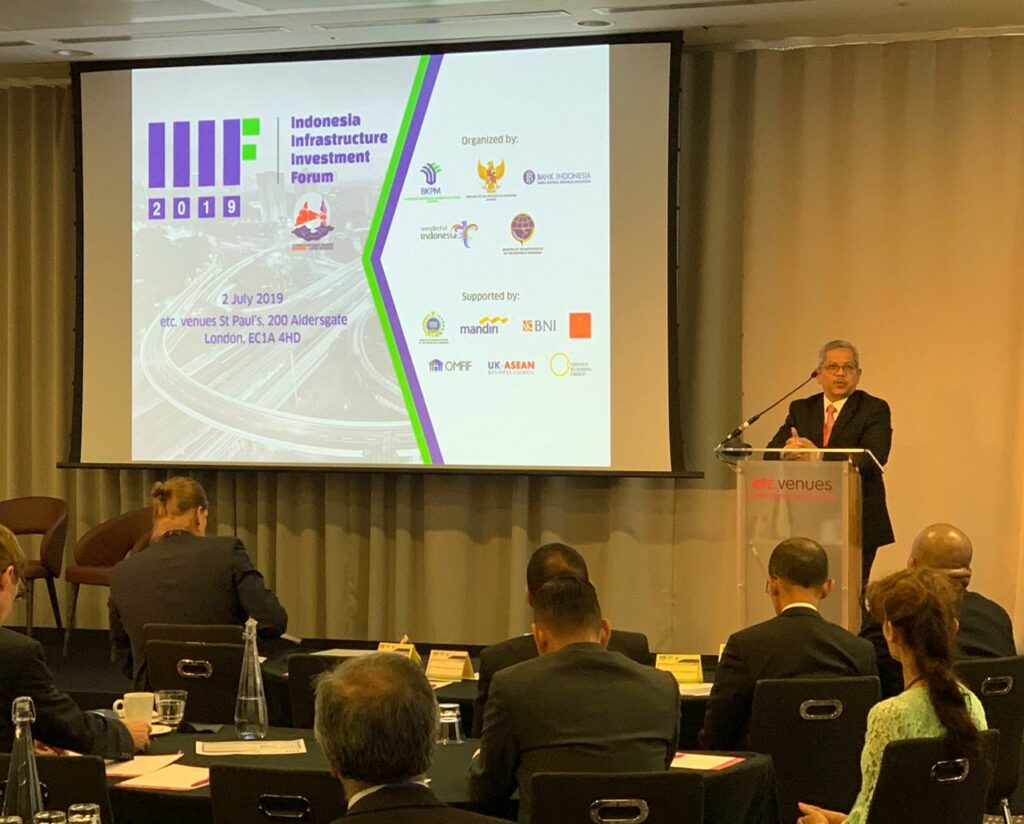
London, 2nd July 2018 – The representative of the Indonesia Investment Coordinating Board (BKPM), The Indonesian Investment Promotion Centre (IIPC) London, in collaboration with the Indonesian Embassy in London, Bank Indonesia London, Bank BNI, Bank Mandiri, Ministry of Transportation, and supported by the UK-ASEAN Business Council, Asia House, Official Monetary and Financial Institutions Forum (OMFIF), and Oxford Business Group held the ‘’Indonesia Infrastructure Investment Forum’’ on July 2nd, 2019 in London.
The event was officially opened by H.E. Dr. Rizal Sukma, Indonesian Ambassador to the UK and Ireland, followed by speech by Mr Richard Graham, M.P., UK Prime Minister’s Trade Envoy to Indonesia. Both opening speeches focused on the positive outlook of Indonesia’s economic development and the vast potential that Indonesia has to offer with regard to investment opportunities, particularly within infrastructure development and delivery.
Ambassador Sukma highlighted the significant role the IIIF forum has in providing a vast opportunity for Indonesia to share its national development plans with UK partners and in connecting representatives from Indonesia’s government sectors with existing and potential UK investors. It was truly an opportunity for stakeholders from both nations to interact and learn together in order to support the business environment in Indonesia and accelerate the growth of our nation. Ambassador Sukma’s invigorating opening-speech was followed by an address by Mr Richard Graham MP who echoed Ambassador Sukma’s positive message on investing in Indonesia, by emphasising two main points: firstly, the need for investors to broaden their focus, to look outside the capital and focus on the remoter, yet very beautiful areas Indonesia has to offer; secondly, more importantly, that it is now not an option, however a must, for serious multinational companies to conduct business with Indonesia, the question is only which areas to do business in and where it is most beneficial for Indonesia. Indonesia however still has challenges with regard to improving ease of doing business and reducing restrictiveness for potential investors. Nevertheless, Mr Graham’s message to potential investors was that, being a large archipelagic nation, building trust is very important for Indonesian partners, but when engagement is established, opportunities and rewards will come. His message to potential investors was: “Jangan malu, don’t be shy, engage with Indonesian partners and I believe you will realise significant rewards; this forum provides a great start for this!”
Mr Graham’s address was then followed by a keynote-speech by H.E. Professor Bambang Brodjonegoro, Minister of National Development Planning. Professor Brodjonegoro emphasised the commitment of President Jokowi to dedicate the next five years as his legacy for Indonesia’s people. The President does not have any burdens to fully and committedly deliver economic reform for Indonesia. The first area of development is still, infrastructure, an area still of significant importance to ensure a thriving Indonesia. With this in mind, in the next 5 years, Indonesia will focus on how to build infrastructure that is inclusive, that ensures equality and has both economic and significant social impacts for Indonesia’s people. With regard to promoting Indonesia’s investment climate, Prof. Brodjonegoro underlined the government’s commitment to achieve bureaucratic reform, not. only at the central level, but also at local levels, to minimise the delays within the process of investing in Indonesia as well as human resources devekopment. A vibrant Q&A session, through the innovative use of slido.com, then followed Prof. Brodjonegoro’s speech, mainly focusing on ensuring accountable land acquisition processes and Indonesia’s commitment toward green infrastructure development. The second keynote speech, delivered by H.E. Dr Perry Warjiyo, Governor of Bank Indonesia, the Central Bank of Indonesia. Dr Warjiyo delivered a very clear and concise summary of the short and long-run prospects of Indonesia’s economy, before highlighting key investment opportunities in Indonesia and core policies on infrastructure financing. Indonesia’s macroeconomic stability remains well-maintained, supported by exchange rate stability and low inflation. The strengthening of the Rupiah in June 2019 on the back of a solid domestic economic outlook, also supports Indonesia’s positive current and future economic outlook. With regard to policy, Dr Warjiyo assured existing and potential investors that, in Indonesia, Bank Indonesia is not working alone. The Bank has strong synergy with the government, whether it be with the Ministry of Finance, Indonesia’s Financial Services Authority, even with the President himself, the cooperation is solid. The spirit of gotong royong (working together) is the key between Bank Indonesia and the government in order to ensure economic growth and stability in Indonesia. Particularly to support infrastructure development and financing.
The opening addresses was followed by the first panel session, moderated by John Kjorstad, Global Services’ Infrastructure Leader, KPMG. Invited the panellists were Mr Luky Alfirman, Director General of Budget Financing, Ministry of Finance; Mr Ekoputro Adijayanto, CEO of PINA; and Mr Armand Hermawan, President Director of PT. PII. This panel focused on initiatives and solutions that the Government of Indonesia is committed to provide in order to attract infrastructure investment in Indonesia. The discussion started with an overview of the challenges faced by Indonesia in achieving its infrastructure development goals, particularly the challenge of achieving adequate financing. In this respect, it is thus crucial to include the private sector within the picture, most notably through Public Private Partnership (PPP) initiatives. In implementing PPPs, a sound regulatory framework is needed, which ensures financing assurance and clear direction on how the private sector can decrease the burden of infrastructure development on Indonesia’s state budget. In order to achieve these goals, the government has formed Special Mission Vehicles, such as SMI, IIGF and SMF, which aim to work together with private investors to ensure the delivery of infrastructure projects that address the specific needs of Indonesia’s people. The government’s commitment toward ensuring inclusive infrastructure development is also illustrated by its focus on projects which aim to fulfil SDG goals for Indonesia and projects which support green development, aiming to attract many philanthropic investors.
Dr Warjiyo’s presentation was followed by the second panel session on “Unlocking Private Sector Participation in Infrastructure Projects”. This panel was moderated by Ms Pooma Kimis, VP/Director, Autonomous Research. Panellists for this session included, Mr Nyoman Gede Suarja, Chief Executive of Bank Mandiri (Europe) Limited London, Mr Mohammad Ghozie Indra Dalel, Director of Operational and Finance, PT. SMI, and Gianluca Minella, Head of Infrastructure Research, DWS. The panel started with the moderator prompting Mr Suarja to describe success stories with regard to infrastructure development and financing in Indonesia. To answer this question, Mr Suarja highlighted key messages delivered by Governor Perry Warjiyo, in that Indonesia’s stable economy, its stable interest rate and currency, are core factors supporting success in infrastructure development, financing and delivery. From an investor’s point of view, a stable economy also acts as a catalyst for investment. Alongside this, Indonesia also offers alternative financing. Mr Suarja noted that financing for infrastructure projects are likely to face issues with debt to equity ratios, thus, Bank Mandiri, is committed to alternative modes of financing to enable investors to maintain debt to equity ratios. Mr Suarja also addressed questions on the current level of interest that foreign investors have in Indonesia, by noting the example of the attractiveness of Indonesia’s Komodo bonds to foreign investors. The discussion with PT SMI highlighted its role in accelerating infrastructure development; Mr Dalel emphasised PT SMI’s role in ensuring sound financing opportunities for investors, alongside expertise in equity development aiming to guide foreign investors in forming projects that are bankable. Mr Dalel also noted PT SMI’s commitment toward green development, noting in particular, PT SMI’s commitment toward providing a specific team focusing on supporting green conscious projects and projects which strive to fulfil SDG goals for Indonesia. Jean Luca from DWS then focused on what foreign investors are looking for in Indonesia, by highlighting the pressing issue of species extinction and global warming, green development is thus key.
The third and final panel was moderated by Oliver Cornock, Editor-in-Chief of Oxford Business Group and focused on doing business in infrastructure and tourism sectors in Indonesia. Mr Ikmal Lukman of BKPM presented some types of economic zones (special economic zone, industrial estate, free trade zone, bounded zone, and bounded logistic centre) as the alternative locations for investment and how to do business in Indonesia, particularly for infrastructure and tourism sectors. Meanwhile, Mr Hengky Manurung of Ministry of Tourism showed how tourism has been put as a priority sector by the Government given the fact that Indonesia’s tourist growth and tourism investment realization growth reached 12.58% and 32% respectively. The initiative to develop at least 10 New Bali shows the government’s seriousness in tourism development. Another speaker in the Panel, Mr Matt Cavanagh from Prudential, expressed his view of the significant of Indonesia as the ASEAN’s largest economy. According to Matt, basically the most important things for Indonesia now are the clarity of regulation and the right plan for infrastructure projects.
The panels sessions was then followed by Project Workshops, where all participants were divided into three groups with three interest categories namely transportation and urban infrastructure projects moderated by Vitto Tahar from the Indonesian Embassy, non-transportation projects moderated by Fitria Irmi Triswati of Bank Indonesia London, transportation & tourism infrastructure projects moderated by Aditia Prasta of Indonesia Investment Promotion Centre (IIPC) London. During this breakout session, participants had the opportunity for direct consultation with project owners and related stakeholders, among others central government agencies, provincial governments, Indonesia state-owned companies, as well as financial institutions. Therefore, participants could gain in-depth understanding of Indonesia’s extensive infrastructure and tourism projects.

